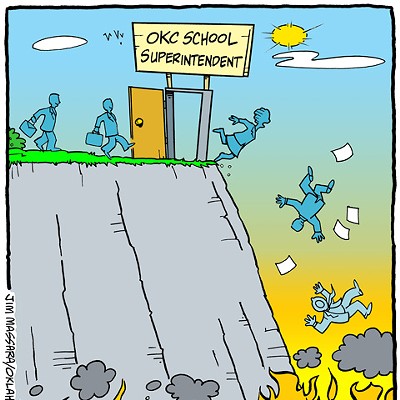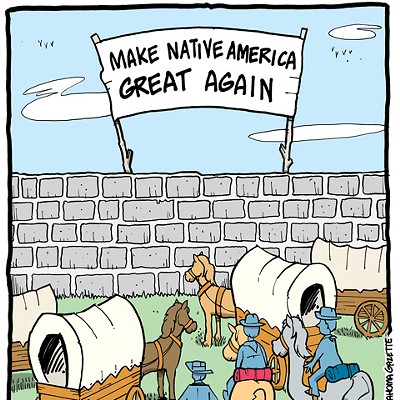Author George Washington Cable wrote after the Civil War about how the Italian butchers in the French Market in New Orleans often would delight their customers by joyously singing as they cut meat for them.
While the Muslim meat cutters at the International Foodmart on N. Portland Avenue in Oklahoma City do not sing as they divide sides of beef for their waiting customers, it is apparent to a visitor they enjoy performing their duties.
Islamic law requires that animals be slaughtered in a certain manner, and the International Foodmart has a designation on its front door that indicates that the meat sold there has been prepared in accordance with those laws. And a visit to that establishment is a reminder of the diversity of the Oklahoma City Islamic community, with visitors including elderly Pakistani men in fezzes, young businessmen in dark suits who speak on cell phones in different languages as they wait for their orders, surgeons in scrubs, college students and women with children whose shirts pay tribute to a different Oklahoma City-area schools.
During the recently concluded holy month of Ramadan, Muslims are required to fast during the daylight hours, and after the sun sets many of them gather at friends' and relatives' homes for what is known as "iftar," the feast that celebrates the end of the fast. The International Foodmart is very busy during Ramadan as a result.
For the past three years, the neighboring mosque, operated by the Islamic Society of Greater Oklahoma City, has hosted a mullah from Johannesburg, South Africa " Abdul Munshi " who has memorized the Koran. Imad Enchassi of the Islamic society reports that Munshi has become a beloved figure in the Oklahoma City Islamic community due to his piety and kindness, and that his presence has become part of the community's Ramadan experience.
Enchassi hopes that Munshi will continue to come to help celebrate Ramadan in Oklahoma City in years to come.
And, other immigrants have brought different traditions that are now visible in Oklahoma City, as well. In Mexico and other Central and South American countries, it is not unusual to see people, most of them women, on streets and sidewalks selling food items from carts, cars and trucks, and such vendors are now present in areas of Oklahoma City where Hispanic immigrants reside. During the summer months, an armada of ice cream-selling handcarts emblazoned with bright colors departs every morning from a storefront on Commerce Street in the Capitol Hill area of south Oklahoma City. Those vendors sell their wares in front of schools, churches and other places in that locale where customers can be found.
The sight of a young woman selling flowers from a tray in postwar Liverpool, England, prompted John Lennon and Paul McCartney to write decades later a "pretty nurse is selling poppies from a tray" when writing of a street, Penny Lane, that was close to Lennon's boyhood home.
And, it is possible the street vendors found in Oklahoma City will inspire a youth to write about the sight of a pretty Hispanic girl selling ice cream from a handcart.
O'Brien is an Oklahoma City attorney.












